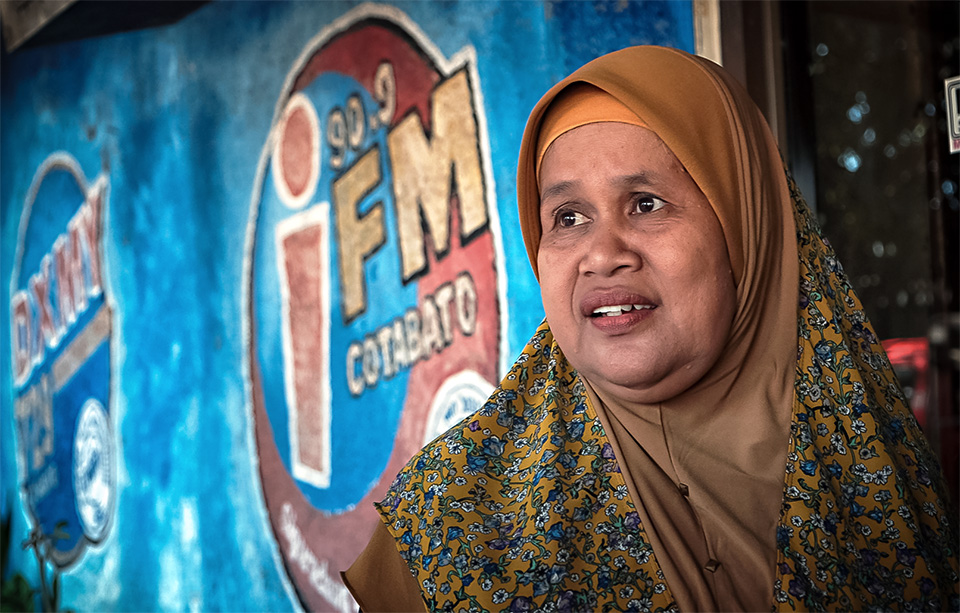From where I stand: “If women are knowledgeable and have skills, they can make the impossible possible. They can make peace.”
Date:


When I was 14, my father wanted me to marry, and he engaged me to a man from our community without my consent. I said to my father, “I don’t want to marry! I want to study.” But my father said, “You cannot study because there is martial law in Mindanao.” So, I ran away and went to study religion on my own.
I started working in radio in 2008, and I was the assistant host for a show. In 2015, I received training from UN Women on how women can be involved in peacebuilding, and now, I am the host of my own show. On my radio show, I ask, “What are the rights and roles of women?”
When talking about the situation in my area, Mindanao, people always overlook women and belittle her role. Most of the women do not know their rights; they only know their responsibilities. A woman has to know her rights, because without that, she will always be a victim.
But, women are very important in times of conflict. Women can do many things without using a weapon but by using her knowledge to solve problems. For example, 5% of local government development funds should be going to programs exclusively for women. Women can ask the government about this money and how it is being spent.
We talk about these things on the radio show. We try to help women know how to prevent conflict and how to make peace, first in their family and then in their community. My hope is that women will be involved in every step of the new government. We women are born to be like that.
Anisa Taha Arab, 54 years old, is an Islamic religious leader and host of a UN Women radio show broadcast across Mindanao, Philippines. The show informs women about their rights and how they can contribute to peace, as residents of Mindanao prepare to vote in a plebiscite that could end a decades-long armed struggle. The show is part of UN Women’s regional programme Empowered Women, Peaceful Communites, which works to empower women to prevent violent extremism and contribute to peacebuilding. Anisa’s story contributes to Sustainable Development Goal (SDG) 16, which aims to promote peaceful and inclusive societies.